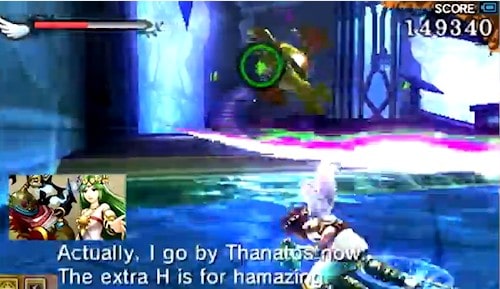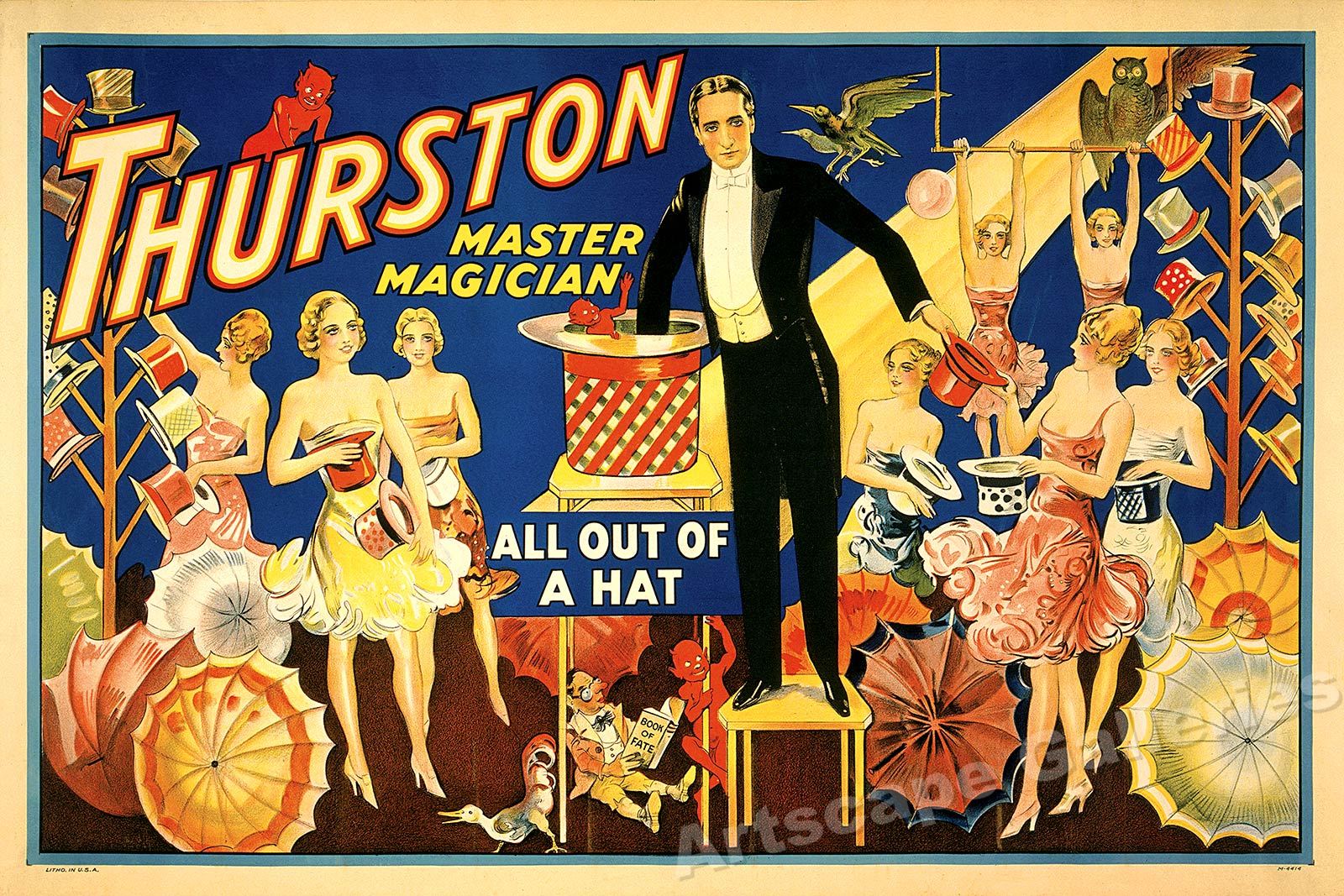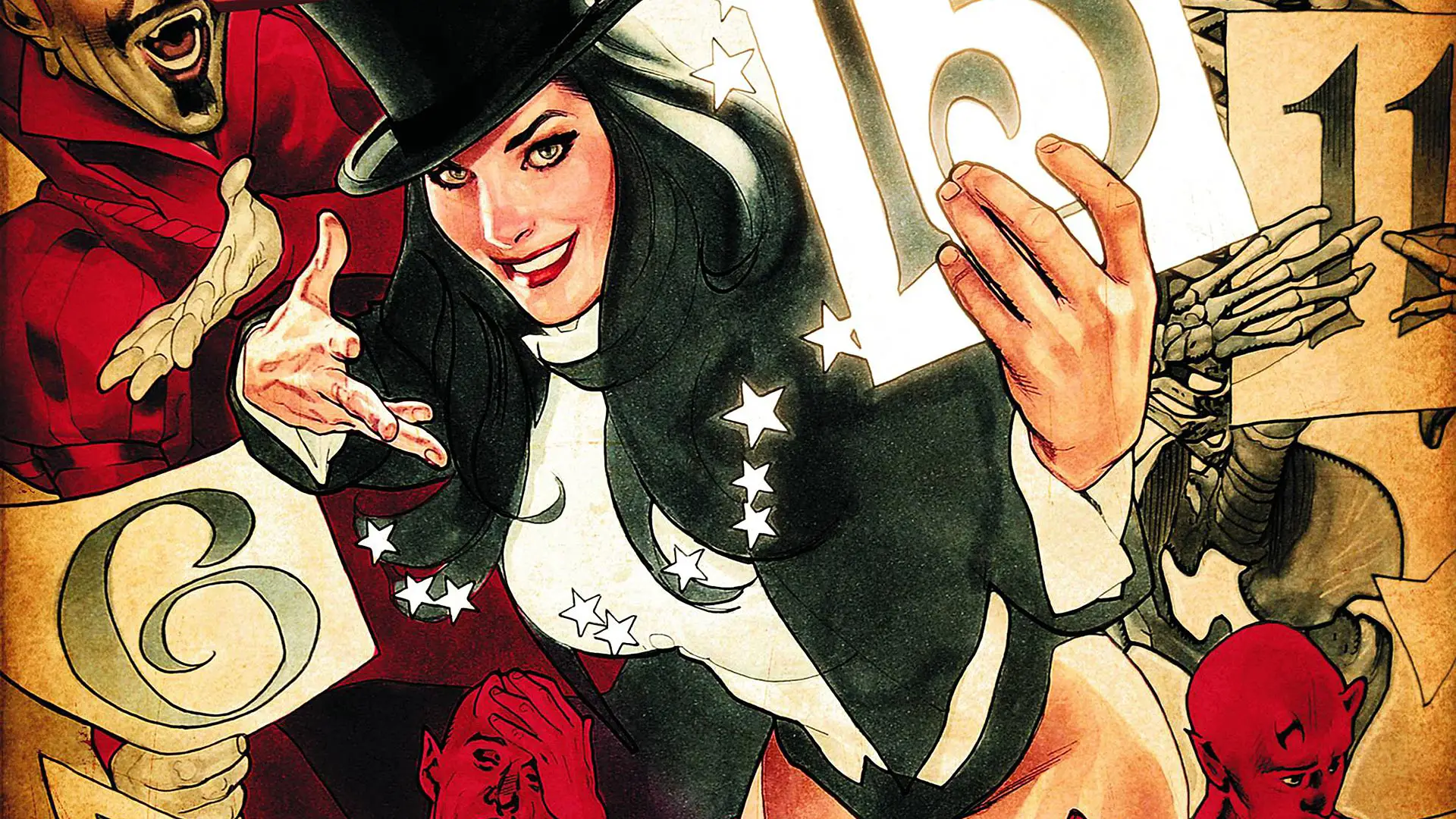Oh dear, is this a GM advice article?
Sort of. I've seen a good few "how to run NPCs well" advice posts and columns, and as I'm sure you can imagine the advice, when it's good, boils down to obvious things like "improv, be a good actor, give them personality quirks".
I think there might be some value in looking at the question from a more design-based viewpoint, rather than giving acting advice. Acting certainly adds something to a game, but you're a GM, not an actor - maybe you can act, maybe you can't. One thing you are for certain, though, is a game designer.
So, if you'll indulge me, let's look at running NPCs through the lens of game design by looking at a genre that has always done them well - the Japanese video game RPG. Specifically, let's look at NPCs for what they are in game design terms, at least in those kinds of games - background and setting elements that serve as delivery systems for information.
I love me some JRPG goodness. I've made no attempt at hiding this. But while mechanically dense combat, two-dimensional NPCs and pre-structured plots might be all well and good for your Pokemons and your Final Fantasies, they're not the things I come to tabletop RPGs for - if anything, those are all things to be actively avoided in pen and paper games.
When RPGs were transformed from pen and paper to 1s and 0s, they had to sacrifice certain aspects of what made them work in the first place - namely, the human element - and learn to provide enjoyable play experiences on their own terms.
Since those early days of
Zork, video game RPGs have evolved into their own beast, and the Japanese industry in particular has been churning out hallmark examples of what computer chips can do with the genre like nobody's business.
But is there anything they can teach us about how to play their tabletop forefathers - especially in the OSR/DIY scene, which leans into that human element of play more than most other genres?
Let's humour me and say yes.
"NPC Dialogue"
In your standard JRPG, you can walk up to any NPC, press "A" or your console's equivalent, and be rewarded with one or two lines of dialogue in a little text box. You might see a name pop up for the character, or a little portrait, but probably not. In a constantly evolving medium, JRPGs have stuck with this same method since the first Dragon Quest. Press "A", read, done.
By the way, I won't be talking about big, important NPCs here, who normally have much more to say through cutscenes and the like - I'm talking about when you first arrive in The Next Town and there are a bunch of folks with only a few sprites or character models between them, standing aimlessly around, waiting for you to poke them (or whatever the "A" button does; the player character rarely or never speaks for themselves in these games, so how they get these strangers to spontaneously start spouting conversation is one of the genre's many handwaved mysteries).
These supporting characters don't have much to work with, but the best games in the genre can use those few scant lines of text to great effect.
Let's look at some of the things game developers do to make these otherwise unimportant NPC extras a worthwhile part of the game, and try to apply those same principles to running generic NPCs as a GM.
Concise And Useful/Interesting/Charming
The reason, I think, the player in a JRPG wants to talk to all these random idiots who only say two short lines of text over and over, is because each one of those short lines reveals something new about the game. I'm curious to see what the game has for me. And the more I find that text to be gameable info, noteworthy advice or just generally charming banter, the more likely I am to try again with the next character.
It can be crucial quest info, sure, but even generic chat can give new insight into your setting. How does this person feel about the king? Are they excited about an upcoming festival?
You don't know who your players will want to talk to, of course. Have a list of useful or interesting information a random commoner might say, and put it in the mouths of whatever NPC your characters gravitate to.
Seeking Out Conversation
You have to go up to the character and hit the talk button if you want to hear what they have to say, so it's completely possible to play the whole game without ever talking to one of these NPCs. Don't let that happen at your table!
As a GM, your players can't see the world unless you describe it - so make sure you make it clear that there are all these people around, just waiting to be talked to. Make them intriguing, even if they're just another villager. And when the players bite, have something interesting ready to say, as per the last point: that's their reward for using their talking skills, just like loot is their reward for using their dungeoneering skills.
Make your players aware of and interested in potential conversations, and reward them for engaging in dialogue.
... And The Reverse
Don't just count on your players to seek out dialogue, though. Dialogue should be all around them anyway, at least wherever there are people.
The world exists and goes on without the players, and so conversations should just naturally occur around them. Have them overhear snippets as they pass, and let them either jump in to the conversation or listen a while. Reward note-taking.
And, foist conversations on them! NPCs can come up to your PCs and engage them: try to sell to them, hit on them, go on a racist tirade about half-orcs. It doesn't even have to be gameable - just a random NPC asking a player's character for the time can be enough to draw a player in.
Players shouldn't have to actively chase conversation with NPCs; it should occur around them, come and find them.
Idle Banter
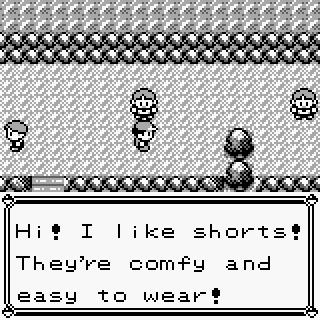
There's enough life and death in the game already. Not every conversation has to have a dramatic impact on your setting's future or the player characters' destinies. Let your players put their feet in their mouths without it having nation-wide consequences.
People talk about dumb, normal stuff all the time. It's most of talking. Having low-stakes conversations will make players more relaxed about talking to NPCs in future, as well.
A good way to do this is through a child NPC. They might want to know a PC's favourite colour, or ask them if they want this rock they just found.
Yes/No
Getting the players to respond when an NPC talks to them is another matter entirely, especially getting them to respond in character, if that's what you're aiming for.
In JRPGs, you normally just listen to a given NPC rather than engage in actual back-and-forth dialogue, but a genre staple is to allow the player conversational input via one avenue only: the YES/NO box.
These are often false choices, or just lead to one of two text options, the other of which can be read by talking to the same character again. But at least the player did something, and saw the situation progress because of their actions! That's the whole game in a nutshell.
In your tabletop game, a simple yes or no question is a great way to get a player to engage. Don't raise the stakes too high - this isn't an interrogation, remember, just idle small talk. Have they been here before? Did they see the play last night? Then, leave it there.
Precise Game Info
One thing I admire about the JRPG genre is how unabashed they are that they're games. While a western RPG will try to hide gameable information in natural-sounding dialogue, Japanese games just blurt out the useful info at you through a chatty NPC.
They'll even do this on a meta-level too; every Pokemon game has a person standing around the first or second town who reminds you to "save your game". You wouldn't catch Peasant #3 in The Witcher talking about save files or reminding you how to access the audio options.
I digress. The point is, it's fine to just rub the actual, gameable information you're trying to get across in your players faces. You don't need to wait until what feels like a natural moment to bring it up, and you don't need to obscure it by trying to make it sound more in character.
If you think the players need to know something, have an NPC just straight up tell them.
Hints and Rumours
The other way, of course, to impart information through NPCs. Characters not knowing the whole story or partaking in gossip can add to verisimilitude and let the players figure things out themselves from context clues, which is always nice.
Don't try to give out critical information this way, but anything else is fair game. Rumours are a great way to add intrigue to adventures - are the ghost stories just stories, or should the party stock up on holy water before they delve into the woods?
Rumours and tales differing between each place or person is also a great idea. Or not necessarily differing, but focusing on or adding new parts to the same story. Which leads me to...
Storytelling
A word with baggage in some RPG circles, but I'm talking about actual characters in the game telling stories.
Video games people use the term "environmental" storytelling for stuff like when you find "RUN" written on the wall in a zombie game. The place itself telling you about what kind of a place it is, and imparting relevant, gameable information to the player.
This kind of storytelling isn't exactly environmental, but it does use an important part of your game's background; those NPCs.
To give an example from Dragon Quest 11, which I've been playing recently and which inspired this whole post: An NPC in one town mentions a relative who moved away. When you eventually reach another part of the world, an NPC will mention moving away from their family. It's a small moment that you'll miss unless you talk to those two specific people, and it doesn't add anything to the overarching story, but it's there to find.
You might think that this makes the world seem smaller, but in fact it can give your setting new size and depth. Little touches and connections that show you've considered and thought about these random commoners (even if you haven't really!) bring your players into the fiction.
Another great example from DQXI: a city was recently destroyed by monsters. It's the talk of the town, the last major world-scale event, and NPCs frequently bring it up. Then, suddenly, a few hours into the game, one NPC will casually add some information to the story you hadn't heard before, information about the involvement of a certain person... Is it true? Because if so, this changes things... Or is it just a case of the story being warped in its retelling?
Sometimes, the reward for your players engaging in the fiction doesn't have to be directly gameable information - it can just be more story. And all fiction is gameable in one way or another, since this is a game of fiction!
When players show an interest in an NPC's life, that's a story. And stories can be told and retold in new ways - that's worldbuilding.
Screenshots from: Dark Cloud, Pokemon (R/B, G/S/C, FR/LG, R/S/E), Persona 5, Monster Hunter World, Dragon Quest XI, Kid Icarus: Uprising
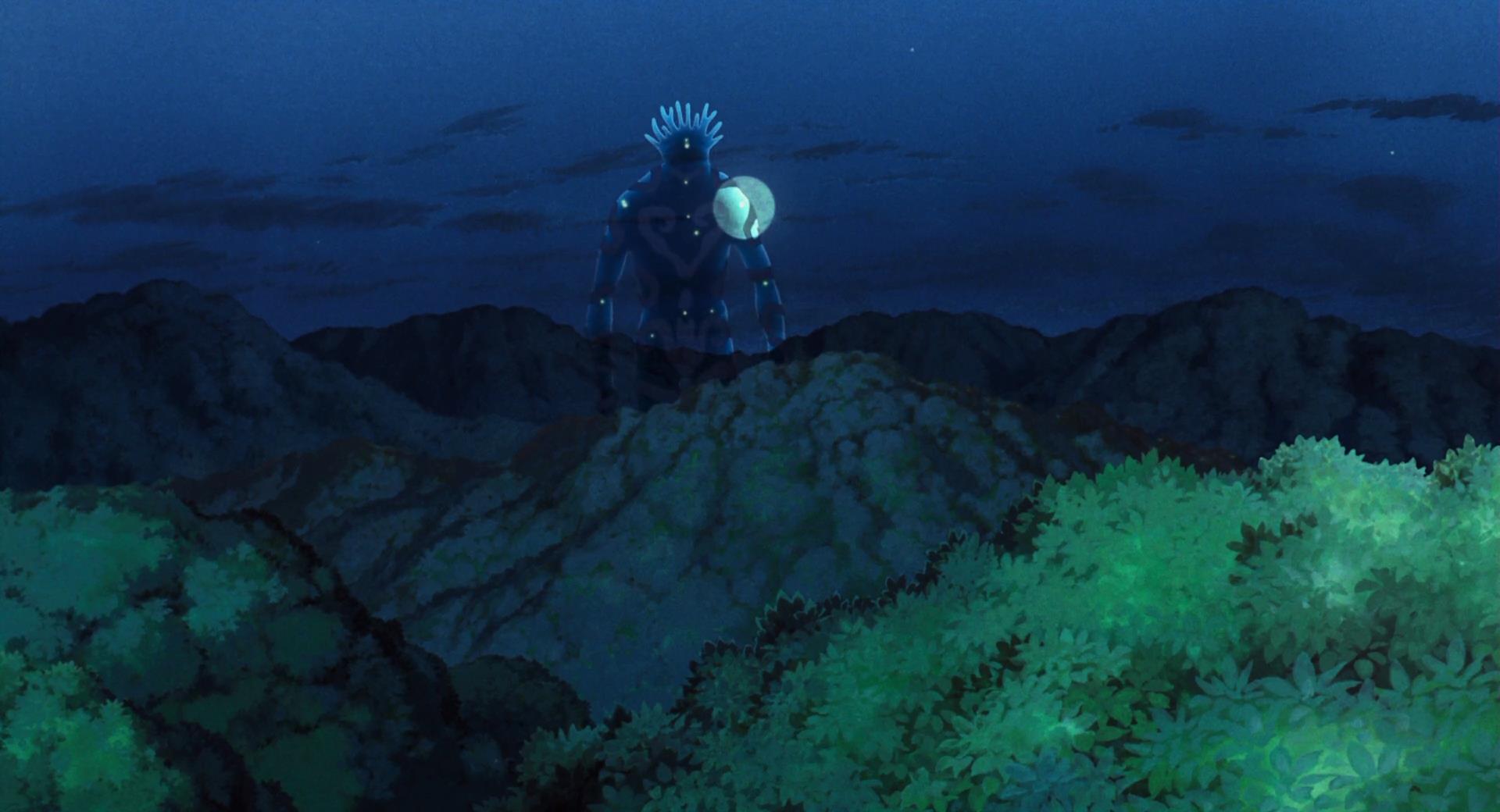

/cdn.vox-cdn.com/uploads/chorus_image/image/59605469/melies.0.jpg)















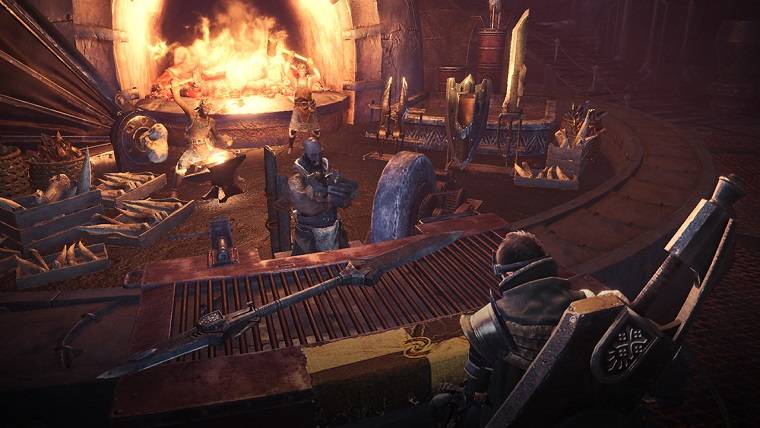


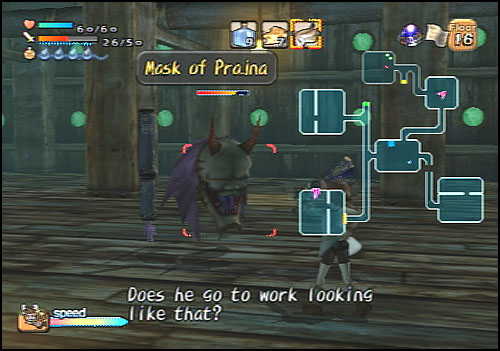
/2016%2F02%2F23%2F28%2Fash.53353.jpg)







